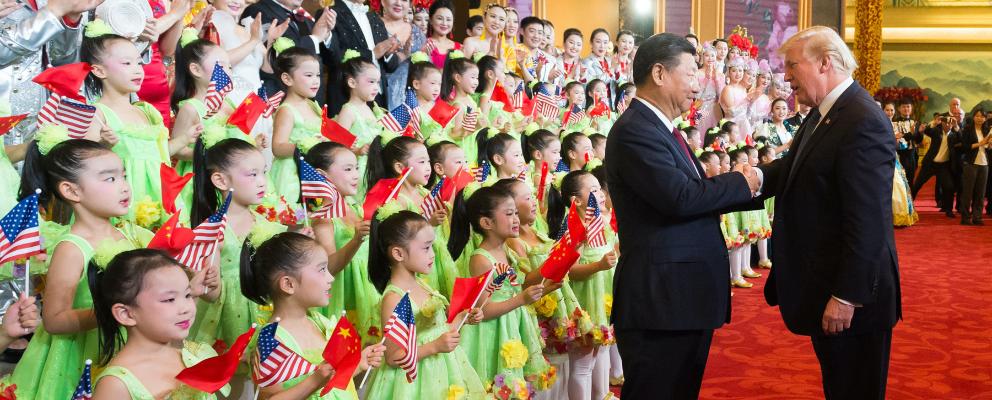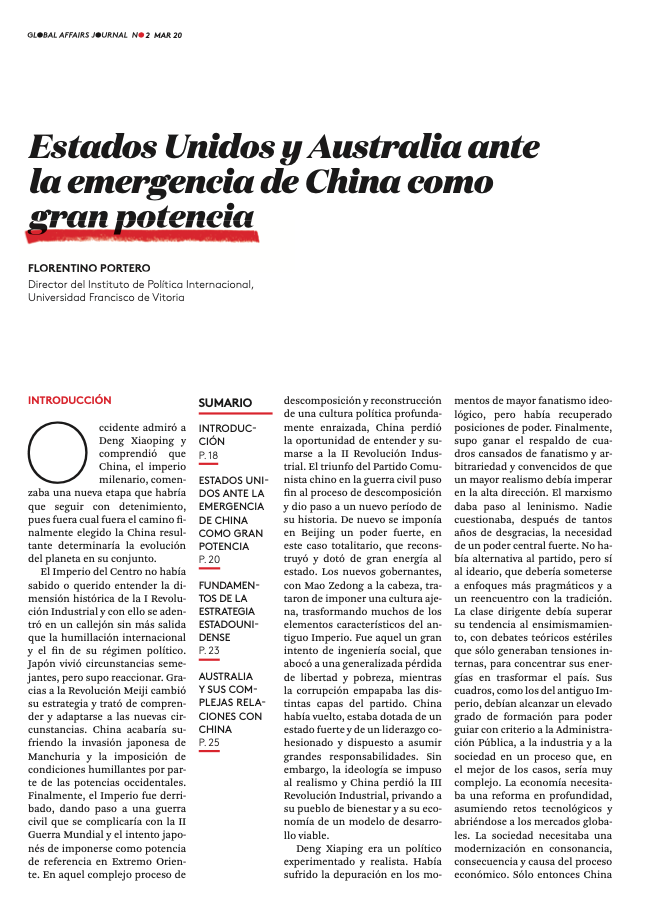
visit Xi and Trump during the US president's only visit to China, in 2017 [White House] [White House].
JOURNAL / Florentino Portero
 [10-page document. download in PDF].
[10-page document. download in PDF].
INTRODUCTION
The West admired Deng Xiaoping and realised that China, the millenary empire, was entering a new phase that would have to be followed closely, for whatever path was finally chosen, the resulting China would determine the evolution of the planet as a whole.
The Central Empire had been unable or unwilling to understand the historical dimension of the First Industrial Revolution and had thus entered an impasse with no way out other than international humiliation and the end of its political regime. Japan experienced similar circumstances, but was able to react. Thanks to the Meiji Revolution, it changed its strategy and tried to understand and adapt to the new circumstances. China would eventually suffer the Japanese invasion of Manchuria and the imposition of humiliating conditions by the Western powers. Eventually, the Empire was toppled, giving way to a civil war that would be complicated by World War II and the Japanese attempt to impose itself as the power of reference letter in the Far East. In that complex process of decomposition and reconstruction of a deeply rooted political culture, China missed the opportunity to understand and join the Second Industrial Revolution.
The victory of the Chinese Communist Party in the civil war put an end to the process of decomposition and ushered in a new period in its history. Once again, a strong, in this case totalitarian, power was imposed in Beijing, which rebuilt and energised the state. The new rulers, led by Mao Zedong, tried to impose an alien culture, transforming many of the characteristic elements of the old Empire. It was a grand attempt at social engineering, which led to widespread loss of freedom and poverty, while corruption permeated the various layers of the party. China was back, endowed with a strong state and a cohesive leadership willing to take on great responsibilities. However, ideology won out over realism and China lost the Third Industrial Revolution, depriving its people of welfare and its Economics of a viable model of development .